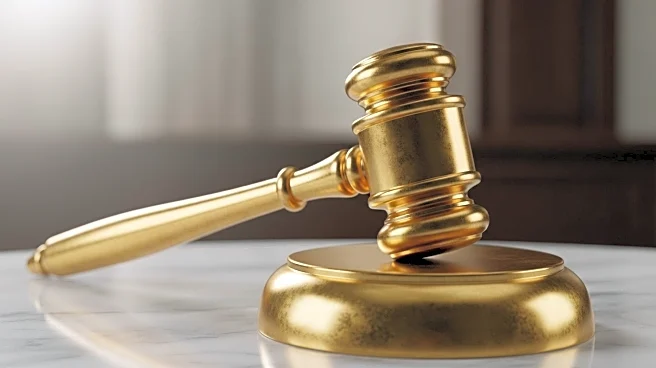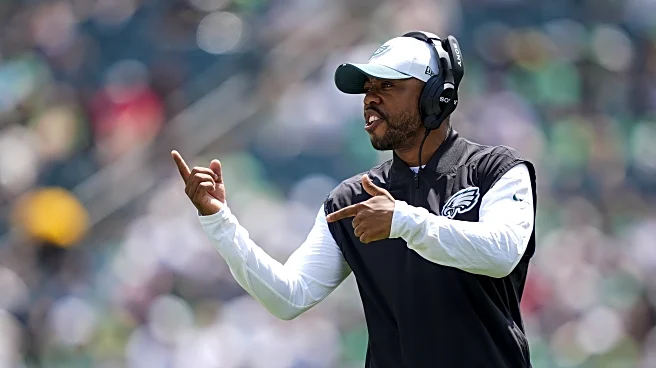What's Happening?
Anders Besseberg, the former president of the International Biathlon Union (IBU), has been sentenced to three years in prison by Norway’s Court of Appeal. Besseberg was found guilty on nine out of ten charges related to corruption. This sentencing follows a previous court decision in 2024, which initially sentenced him to three years and one month, later reduced by one month upon appeal. The Court of Arbitration for Sport (CAS) had previously imposed a lifetime ban on Besseberg from holding positions in sport, highlighting the severity of the charges against him.
Why It's Important?
The sentencing of Anders Besseberg marks a significant moment in international sports governance, emphasizing the ongoing efforts to combat corruption within sports organizations. This case underscores the importance of transparency and accountability in sports leadership, potentially influencing other sports bodies to strengthen their governance practices. The lifetime ban by CAS further illustrates the commitment to maintaining integrity in sports, which is crucial for the credibility and trust of international sporting events. Stakeholders in the sports industry, including athletes, sponsors, and fans, stand to benefit from cleaner governance practices, ensuring fair competition and ethical management.
What's Next?
The sentencing may prompt other sports organizations to review their governance structures and implement stricter anti-corruption measures. It could lead to increased scrutiny of sports leaders and more rigorous enforcement of ethical standards. The IBU and similar organizations might face pressure to enhance their transparency and accountability to prevent future corruption cases. Additionally, this development may influence policy changes at the international level, encouraging collaboration among sports bodies to uphold integrity and fairness.
Beyond the Headlines
This case highlights the ethical challenges faced by international sports organizations and the need for robust governance frameworks. It raises questions about the effectiveness of existing anti-corruption measures and the role of international bodies like CAS in enforcing ethical standards. The long-term impact could include a shift towards more transparent and accountable leadership in sports, fostering a culture of integrity that benefits all stakeholders involved.









